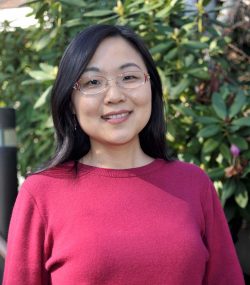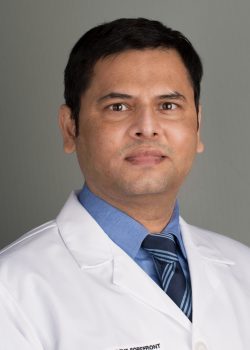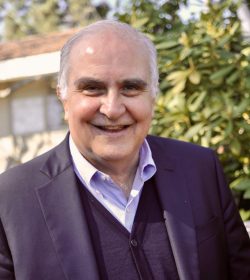About the HLA Lab
The Histocompatibility and Immunogenetics Laboratory (HLA Lab) provides testing to support hematopoietic stem cell and solid organ transplantations by performing HLA genotyping in donors and recipients to assess the closeness of match and identify mismatches; chimerism testing to evaluate for post-transplant engraftment; HLA antibody testing to identify anti-HLA antibodies; and flow crossmatches to assess donor-recipient compatibility. In addition, the HLA Lab provides testing for transfusion medicine, as well as disease association and pharmacogenetics analysis.
The HLA Lab offers a full range of testing services to support hematopoietic stem cell and solid organ transplantations, transfusion medicine (blood product testing) and HLA-related disease association/pharmacogenetics analysis. We service Stanford Health Care, Lucile Packard Children’s Hospital Stanford and other transplant centers and hospitals in the Bay Area and beyond.
As part of Stanford Blood Center (SBC), the HLA Lab is accredited by ASHI, certified by CLIA, and licensed by the State of California for high-complexity testing.
Contact us
Phone: (650) 724-6742 or (650) 723-5548, Option 0
FAX: (650) 723-6350
Email: secure-HLAsupport@lists.stanford.edu
Mailing Address:
Stanford Blood Center — HLA Lab
3373 Hillview Avenue
Palo Alto, CA 94304
CLIA HLA Director: Dr. Bing Melody Zhang, MD, MS, FCAP, A(ACHI)
OUR SERVICES
Clinical Services
Our HLA Laboratory offers comprehensive testing services to support clinical needs in transplantation and disease management, including:
Transplant and Disease Association Testing:
- HLA Antibody Testing: Detection and characterization of HLA antibodies to assess transplant compatibility.
- Flow Crossmatches: Immunological assessment to ensure compatibility between donor and recipient.
- HLA Typing: High and intermediate resolution typing for solid organ and hematopoietic stem cell transplants.
- Chimerism Testing: Monitoring of donor and recipient DNA post-transplant to detect graft rejection or relapse.
HLA-related Disease Associations and Pharmacogenetic Testing: Identification of genetic markers associated with specific diseases and response to medications.
Platelet Compatibility Testing
HLA Platelet Compatibility Testing: For patients with platelet refractoriness, ensuring compatibility in platelet transfusions.
Research Services
The HLA Laboratory is at the forefront of research and innovation, offering specialized services for research and development purposes, including:
Research Testing Services:
- NGS (Next Generation Sequencing): Advanced DNA sequencing methodology offering high-resolution, accurate, and rapid HLA typing.
- SSO (Sequence-Specific Oligonucleotide Typing): Reliable molecular method for identifying HLA alleles, particularly useful for typing samples with known alleles.
- NGS Chimerism: High-resolution chimerism analysis to assess donor-recipient cell mixtures, critical for monitoring post-transplant engraftment.
Custom Research Services: Our HLA lab also offers the flexibility to collaborate on specialized research projects beyond the listed services.
Please reach out with your specific research requests, and our team will work with you to develop a tailored solution.
Stanford Entities: Log in to EPIC with your Stanford credentials to order. Sample requirements and reasons for rejection are listed under the “Specimen” tab per each test type. For a list of services available in the EPIC system, click here.
Please note: Online ordering is currently unavailable while we perform upgrades. Contact secure-HLAsupport@lists.stanford.edu for assistance.
Transplant Testing Services
HLA Disease Association & Pharmacogenetic Testing Services
Please complete “Research Study Application for Services” Form by clicking the gray button below. Email the completed form to sonianb@stanford.edu.
The information in this form helps us understand your request and aids in drafting a Statement of Work for your signature.
This document will detail sample requirements, packing instructions, shipping instructions, reporting, cost and billing.
Additional Information About HLA Testing
Chimerism by NGS
- Description: Chimerism testing by NGS is essential for monitoring donor and recipient cell populations post-transplantation. NGS’s high sensitivity allows for the detection of even small quantities of chimeric cells, making it an invaluable tool in ensuring successful grafts and early detection of potential complications.
- Resolution: High sensitivity and resolution, capable of detecting low-level chimerism, crucial for accurate post-transplant monitoring.
- Use Case: Enables precise detection and monitoring of donor and recipient DNA post-transplantation, allowing for early identification of graft rejection or relapse in hematopoietic stem cell transplantation.
Side-by-Side Comparison: NGS vs. SSO
| Feature | NGS (Next-Generation Sequencing) | SSO (Sequence-Specific Oligonucleotide) |
| Description | Next Generation Sequencing (NGS) represents a groundbreaking advancement in HLA typing, enabling precise DNA sequencing that examines the entire HLA gene region. This method significantly enhances the accuracy, resolution, and speed of typing, making it a vital tool in transplantation medicine. By sequencing longer segments of DNA without the need for tiered testing, NGS minimizes ambiguities and reduces turnaround time. As Dr. Marcelo Fernández-Viña, Co-director of the HLA Lab, notes, “This is one of those breakthrough technologies that come only once every 20 years and changes the field.” | Sequence-Specific Oligonucleotide (SSO) typing is a well-established method that provides reliable HLA typing by detecting specific alleles through hybridization. While it offers less detailed results compared to NGS, SSO remains a dependable option for routine clinical testing and research where high resolution is not mandatory. |
| Resolution | High resolution. Allows for detailed identification of HLA alleles at the four-digit level (e.g., HLA-A*01:01) | Intermediate resolution. Typically identifies HLA alleles at the two-digit level (e.g., HLA-A*01) |
| Accuracy | Extremely high accuracy, enabling detection of minor allelic variations | Moderate accuracy, suitable for less detailed analysis |
| Sensitivity | High sensitivity, ideal for detecting low-level chimerism and fine variations. | Moderate sensitivity, suitable for standard HLA typing |
| Applications | Best for critical clinical applications, including transplantation and detailed research studies | Suitable for routine clinical testing, initial HLA screening, and basic research |
| Turnaround Time | Reduced turnaround, potentially as low as 7-10 days due to direct sequencing | Generally faster, depending on the test complexity |
| Use Case | Ideal for precise donor-recipient matching, high-resolution disease association studies. NGS improves patient outcomes by shortening the time required to match donors with recipients, reducing the turnaround time from 14 days to as few as 7 days. This speed is crucial for patients awaiting urgent procedures like hematopoietic stem cell (HSC) transplants. | Useful for general clinical HLA typing, initial disease screening, and routine lab work. SSO is suitable for general clinical applications, including initial HLA screening, where a less detailed but accurate result is sufficient. |
Disease Association & Pharmacogenetic Panels
- Description: There are several HLA specificities known to be associated with certain diseases or drug-induced adverse reactions. The confirmation of presence or absence of HLA factors associated with certain diseases can make a significant impact in the diagnosis and/or treatment of patients. The Stanford Blood Center HLA Lab provides a wide range of HLA disease association and pharmacogenetic testing panels, offering comprehensive and locus-specific HLA genotyping services. Our flexible testing solutions can be tailored to meet all customized HLA disease association and pharmacogenetic testing needs, ensuring accurate test results and interpretations for clinicians and researchers.
Resolution & Use Case: Please click gray link below for detailed information.
Our most frequently requested panels are as follows:
- Abacavir Hypersensitivity
- Allopurinol Hypersensitivity
- Spondyloarthropathies (Ankylosing Spondylitis, Reactive Arthritis, Juvenile Arthritis)
- Eye Disease HLA Association (Acute Anterior Uveitis, Behçet’s Disease, Birdshot chorioretinopathy)
- Carbamazepine Hypersensitivity
- Celiac Disease
- Narcolepsy
- Pediatric Acute-onset Neuropsychiatric Syndrome (PANS)
- Psoriasis
- IL-1 and IL-6 Inhibitors Hypersensitivity
- HLA typing Custom Panel (at intermediate resolution)
- HLA NGS typing (Full High Resolution)
Additional panels are available upon request. Please email us at secure-HLAsupport@lists.stanford.edu
HLA Lab Medical Leadership
 Dr. Bing (Melody) Zhang is a Clinical Assistant Professor for the Department of Pathology at Stanford University Medical School, and serves as CLIA HLA Director for the Histocompatibility & Immunogenetics Laboratory. She is also an attending physician practicing at the Stanford Molecular Pathology service.
Dr. Bing (Melody) Zhang is a Clinical Assistant Professor for the Department of Pathology at Stanford University Medical School, and serves as CLIA HLA Director for the Histocompatibility & Immunogenetics Laboratory. She is also an attending physician practicing at the Stanford Molecular Pathology service.
Dr. Zhang received her medical degree and a master’s degree in Medical Genetics from Shandong University School of Medicine. She pursued postdoctoral research training in the department of Pathology at Stanford University after immigrating to the US. She then went on to complete her residency training in Clinical Pathology, as well as fellowships in Molecular Genetic Pathology and Clinical Genomics here at Stanford. She is Board Certified in Clinical Pathology and Molecular Genetic Pathology.
During the time of her research and clinical training, she won multiple national and departmental awards, including Mary Rodes Gibson Memorial Award in Hemostasis & Thrombosis (American Society of Hematology), AMP Young Investigator Award (Association for Molecular Pathology), Charles B. Carrington Memorial Award (Stanford Pathology Research Retreat), and Department of Pathology Trainee Mentored Award in Precision Health (Stanford), etc. She served as a junior member on the College of American Pathologists Biochemical and Molecular Genetics Committee from 2016 to 2017. During this time, she led the development of NGS-based inherited cancer panel proficiency testing and participated in reviewing of the NGS checklist and NGS proficiency surveys.
Dr. Zhang’s primary research interest is development and application of molecular assays for the diagnosis and monitoring of patients in transplant medicine. Clinically, she is interested in contributing to further integration of HLA laboratory with other operations in the SBC as well as relevant services in the department of Pathology.
CONTACT
Email: mbzhang@stanford.edu
More information about Bing Melody Zhang:
https://med.stanford.edu/profiles/Bing%20Zhang
https://stanfordbloodcenter.org/leadership/bing-melody-zhang/
 Dr. Maneesh Kumar Misra, MS, PhD, F(ACHI) is Co-Director Histocompatibility, Immunogenetics and Disease profiling laboratory, and the Associate Professor of Clinical Pathology. He is certified by the American College of Histocompatibility and Immunogenetics. His research and scholarly interests include allogeneic transplantation, autoimmunity, hematopoietic stem cell transplantation, immunogenetics, and solid organ transplantation. His research mainly focuses on the detection and functional characterization of alloantibodies in the setting of clinical allogenic transplantation. He has identified and characterized several novel HLA alleles, authored more than 23 peer-reviewed publications, and coauthored a book. Maneesh received his PhD from Banaras Hindu University Institute of Medical Sciences in India, and held research positions at the Sanjay Gandhi Postgraduate Institute of Medical Sciences. He then completed a postdoctoral fellowship at the University of California, San Francisco School of Medicine, and an American Society for Histocompatibility and Immunogenetics approved Director-in-training clinical fellowship in transplant immunology and immunogenetics at the University of Chicago Pritzker School of Medicine. After finishing his clinical fellowship at the University of Chicago Pritzker School of Medicine, he became Assistant Professor, and Associate Director of Transplant Immunology and Immunogenetics Section before moving to Stanford University.
Dr. Maneesh Kumar Misra, MS, PhD, F(ACHI) is Co-Director Histocompatibility, Immunogenetics and Disease profiling laboratory, and the Associate Professor of Clinical Pathology. He is certified by the American College of Histocompatibility and Immunogenetics. His research and scholarly interests include allogeneic transplantation, autoimmunity, hematopoietic stem cell transplantation, immunogenetics, and solid organ transplantation. His research mainly focuses on the detection and functional characterization of alloantibodies in the setting of clinical allogenic transplantation. He has identified and characterized several novel HLA alleles, authored more than 23 peer-reviewed publications, and coauthored a book. Maneesh received his PhD from Banaras Hindu University Institute of Medical Sciences in India, and held research positions at the Sanjay Gandhi Postgraduate Institute of Medical Sciences. He then completed a postdoctoral fellowship at the University of California, San Francisco School of Medicine, and an American Society for Histocompatibility and Immunogenetics approved Director-in-training clinical fellowship in transplant immunology and immunogenetics at the University of Chicago Pritzker School of Medicine. After finishing his clinical fellowship at the University of Chicago Pritzker School of Medicine, he became Assistant Professor, and Associate Director of Transplant Immunology and Immunogenetics Section before moving to Stanford University.
CONTACT
Email: mkmisra@stanford.edu
More information about Mannish Kumar Misra:
https://stanfordbloodcenter.org/leadership/dr-maneesh-kumar-misra/
https://med.stanford.edu/profiles/maneesh-misra
 Marcelo Fernández-Viña, Ph.D., F(ACHI) is a Professor for the Department of Pathology at Stanford University Medical School and serves as Senior Investigator of the Histocompatibility & Immunogenetics Laboratory at this institution. He has been working in the fields of Histocompatibility and Immunogenetics since 1982. He earned a degree in Biochemistry from the School of Basic Sciences in Rosario, Argentina, and his Ph.D. in Internal Medicine from the University of Buenos Aires Medical School in Argentina. Previously he held a position as a Professor in the Department of Laboratory Medicine at the University of Texas M.D. Anderson Cancer Center in Houston. He has 170 peer reviewed publications, many of them focusing on HLA variation in multiple world populations, identifying susceptibility and resistance factors for diseases and in the impact of HLA mismatches in allogeneic transplantation; and 59 book chapters. He served as expert Consultant for Donor Searches for NMDP and as President Elect, President and Past President of the American Society for Histocompatibility and Immunogenetics. He served as a member of the Board of Directors and the Executive Committee for the United Network for Organ Sharing. Currently, he serves as Co-Chair of the Immunobiology Committee of the CIBMTR; and is the Liaison between the American Society for Histocompatibility and Immunogenetics to the National Marrow Donor Program. He serves as HLA Expert Consultant for the NMDP for the HRSA contract and is a member of the Histocompatibility Advisory Group for NMDP. He is Councilor of the International Histocompatibility Workshop and a member of the WHO Nomenclature Committee for Factors of the HLA System, Section Editor of Human Immunology and an Advisory Board Member of the International Journal of Immunogenetics.
Marcelo Fernández-Viña, Ph.D., F(ACHI) is a Professor for the Department of Pathology at Stanford University Medical School and serves as Senior Investigator of the Histocompatibility & Immunogenetics Laboratory at this institution. He has been working in the fields of Histocompatibility and Immunogenetics since 1982. He earned a degree in Biochemistry from the School of Basic Sciences in Rosario, Argentina, and his Ph.D. in Internal Medicine from the University of Buenos Aires Medical School in Argentina. Previously he held a position as a Professor in the Department of Laboratory Medicine at the University of Texas M.D. Anderson Cancer Center in Houston. He has 170 peer reviewed publications, many of them focusing on HLA variation in multiple world populations, identifying susceptibility and resistance factors for diseases and in the impact of HLA mismatches in allogeneic transplantation; and 59 book chapters. He served as expert Consultant for Donor Searches for NMDP and as President Elect, President and Past President of the American Society for Histocompatibility and Immunogenetics. He served as a member of the Board of Directors and the Executive Committee for the United Network for Organ Sharing. Currently, he serves as Co-Chair of the Immunobiology Committee of the CIBMTR; and is the Liaison between the American Society for Histocompatibility and Immunogenetics to the National Marrow Donor Program. He serves as HLA Expert Consultant for the NMDP for the HRSA contract and is a member of the Histocompatibility Advisory Group for NMDP. He is Councilor of the International Histocompatibility Workshop and a member of the WHO Nomenclature Committee for Factors of the HLA System, Section Editor of Human Immunology and an Advisory Board Member of the International Journal of Immunogenetics.
CONTACT
Email: marcelof@stanford.edu
More information about Marcelo Fernández-Viña:
https://med.stanford.edu/profiles/marcelo-fernandez-vina
https://stanfordbloodcenter.org/leadership/marcelo-fernandez-vina/
17th IHIW Sponsorship
In 2017, the Stanford Histocompatibility & Immunogenetics Laboratory hosted the 17th International Histocompatibility and Immunogenetics Workshop and Conference (17th IHIW) in Pacific Grove, California.
The 17th Workshop was held to further advance the continued international collaboration in research in HLA and Immunogenetics projects. The major goal was to define HLA and KIR genomics, map serologic epitopes using NGS and single antigen bead technologies, and develop robust research and clinical informatics tools for HLA and KIR.




